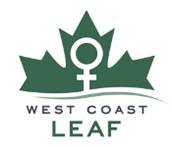New study by West Coast LEAF
Troubling Assessments: Custody and Access Reports and their Equality Implications for BC Women
Imagine leaving a marriage after years of physical and emotional abuse, only to have a psychologist disbelieve your story and recommend custody of your kids to your ex. Imagine inviting a stranger into your home during one of the most stressful and difficult times in your life, in order for them to assess your parenting skills. Imagine being in court without a lawyer and trying to cross-examine a psychologist on their assessment of your mental health, or having a custody assessor criticize you for your cultural traditions. These are some of the experiences women shared with West Coast LEAF regarding their experiences going through custody and access assessments in family law cases.
West Coast LEAF has published a new study on what are commonly referred to as ‘Section 15 reports’ conducted by psychologists and other professionals in contentious custody battles. The study finds that there are no consistent standards for how Section 15 reports should be prepared, and no mandatory training for some of the assessors. The result is inconsistency, a perception of bias in some reports, and a common over-reliance by the courts on reports that may not take adequate account of important issues, including violence against women and children. Other issues that arose throughout our research and consultations include the costs of the reports, confidentiality, language barriers, the effects of cultural differences, and the lack of legal aid to assist parties to navigate these difficult cases.
West Coast LEAF hopes that this study will encourage the BC government and the BC College of Psychologists to implement specific standardized training and specific binding objectives for assessors on the dynamics of family violence and cultural sensitivity.
To find out more about this issue in BC and the necessary steps West Coast LEAF proposes to alleviate it, see our full report, Troubling Assessments: Custody and Access Reports and their Equality Implications for BC Women.





